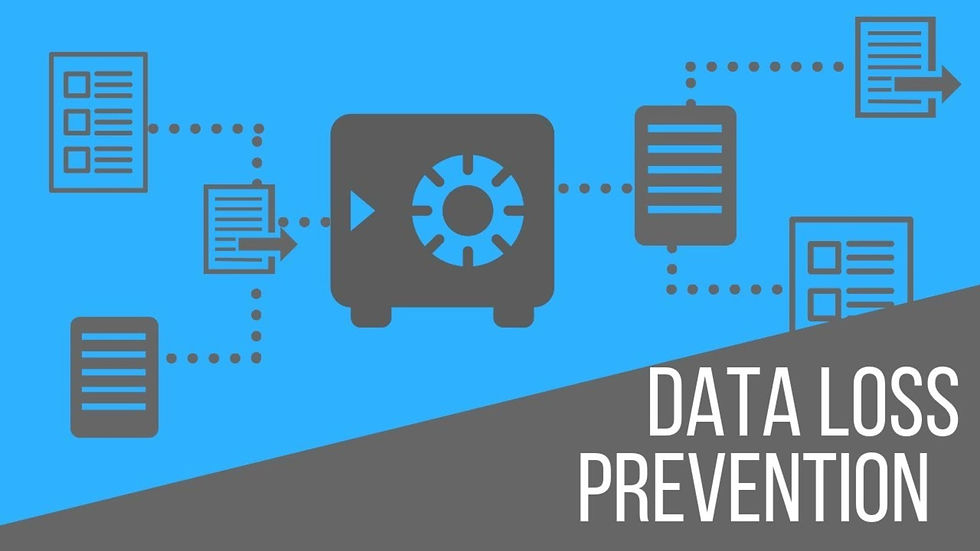Mastering DLP: Your Ultimate Guide to Data Loss Prevention
- informaglobalmarke
- May 5, 2024
- 3 min read
Introduction
In a time when cyber threats and data breaches are common, protecting sensitive data has become critical for businesses all over the world. Data Loss Prevention (DLP) has emerged as a critical strategy for protecting valuable data assets from unauthorized access, leakage, or theft. For businesses in Singapore, where digital transformation is accelerating, leveraging DLP services in Singapore is essential to mitigate the risk of data breaches and ensure regulatory compliance. This comprehensive guide delves into the fundamentals of DLP, its benefits, and best practices for implementing effective data loss prevention strategies.

Understanding DLP Services in Singapore
DLP services in Singapore encompass a range of technologies, processes, and policies designed to prevent the unauthorized disclosure or exfiltration of sensitive data. These services leverage advanced security measures, including encryption, data masking, and user activity monitoring, to identify and mitigate potential risks to data integrity and confidentiality. With stringent regulatory requirements such as the Personal Data Protection Act (PDPA) in Singapore, organizations must implement robust DLP solutions to protect sensitive information and avoid regulatory penalties.
Key Components of DLP Services
1. Data Discovery and Classification: DLP services begin with the identification and classification of sensitive data across the organization's network, endpoints, and cloud environments. By categorizing data based on its sensitivity and importance, organizations can apply appropriate security controls and policies to safeguard against unauthorized access or leakage.
2. Endpoint Protection: Endpoint DLP solutions focus on securing individual devices such as laptops, desktops, and mobile devices to prevent data loss at the source. These solutions employ techniques such as data encryption, device control, and application whitelisting to enforce security policies and prevent unauthorized data transfers or downloads.
3. Network Monitoring and Filtering: DLP services include network-based monitoring and filtering capabilities to detect and prevent unauthorized data transfers over corporate networks. By monitoring network traffic in real-time, organizations can identify suspicious activities, enforce data loss prevention policies, and block unauthorized transmissions of sensitive data.
Best Practices for Implementing DLP
1. Develop a Comprehensive DLP Strategy: Prioritize data protection goals and develop a comprehensive DLP strategy that aligns with business objectives and regulatory requirements. Define clear policies for data classification, access controls, and incident response to guide DLP implementation and enforcement.
2. Educate and Train Employees: Raise awareness among employees about the importance of data security and their role in preventing data loss. Provide regular training sessions on DLP policies, best practices, and common security threats to promote a culture of security awareness and compliance.
3. Regularly Monitor and Update DLP Policies: Continuously monitor and update DLP policies and controls to adapt to evolving security threats and regulatory requirements. Conduct regular audits and assessments to ensure the effectiveness of DLP measures and address any gaps or vulnerabilities proactively.
Benefits of DLP Services in Singapore
1. Enhanced Data Protection: DLP services help organizations protect sensitive data assets from unauthorized access, leakage, or theft, thereby safeguarding business-critical information and maintaining customer trust and confidence.
2. Regulatory Compliance: By implementing robust DLP solutions, organizations can demonstrate compliance with regulatory requirements such as the PDPA in Singapore, avoiding costly penalties and reputational damage associated with data breaches.
3. Proactive Threat Detection: DLP services enable organizations to detect and respond to potential security threats in real-time, mitigating the risk of data breaches and minimizing the impact on business operations.

Conclusion
In an era of escalating cyber threats and regulatory scrutiny, mastering Data Loss Prevention is essential for organizations seeking to safeguard their valuable data assets and maintain regulatory compliance. By leveraging DLP services in Singapore, organizations can mitigate the risk of data breaches, protect sensitive information, and uphold the trust and confidence of customers and stakeholders. By adopting best practices and embracing a proactive approach to data protection, organizations can fortify their defenses against evolving cyber threats and ensure the integrity, confidentiality, and availability of their critical data assets.




Comments